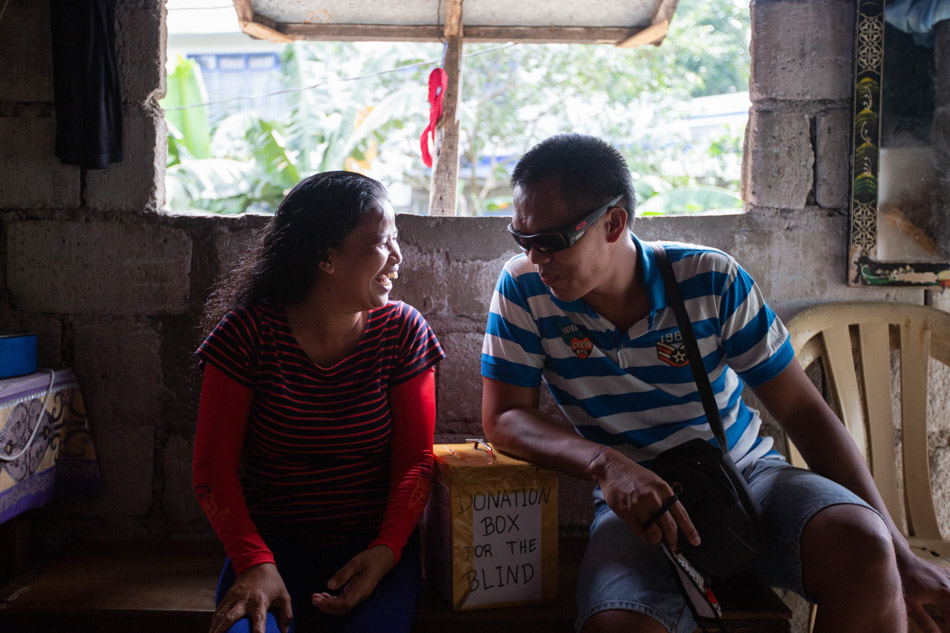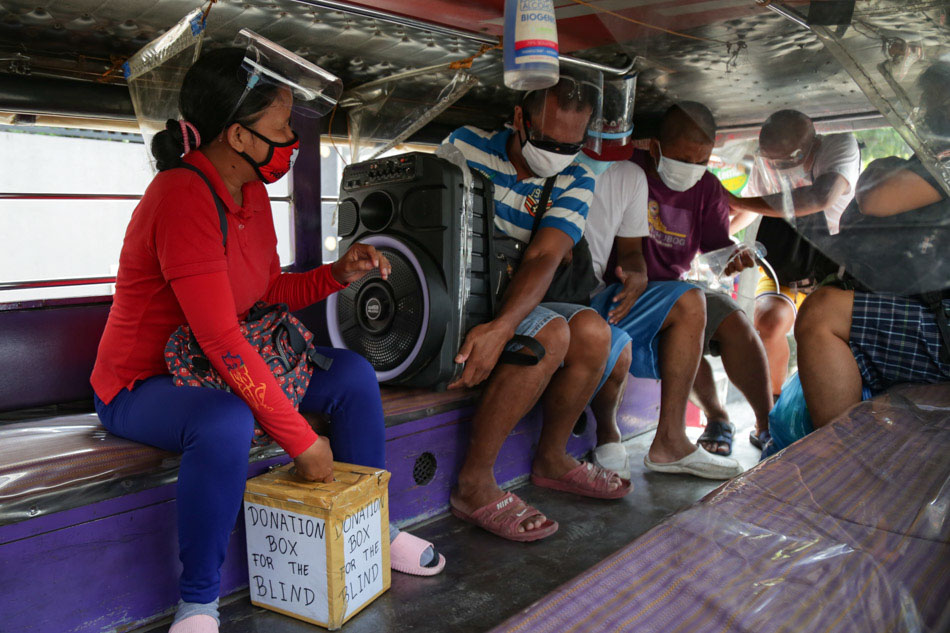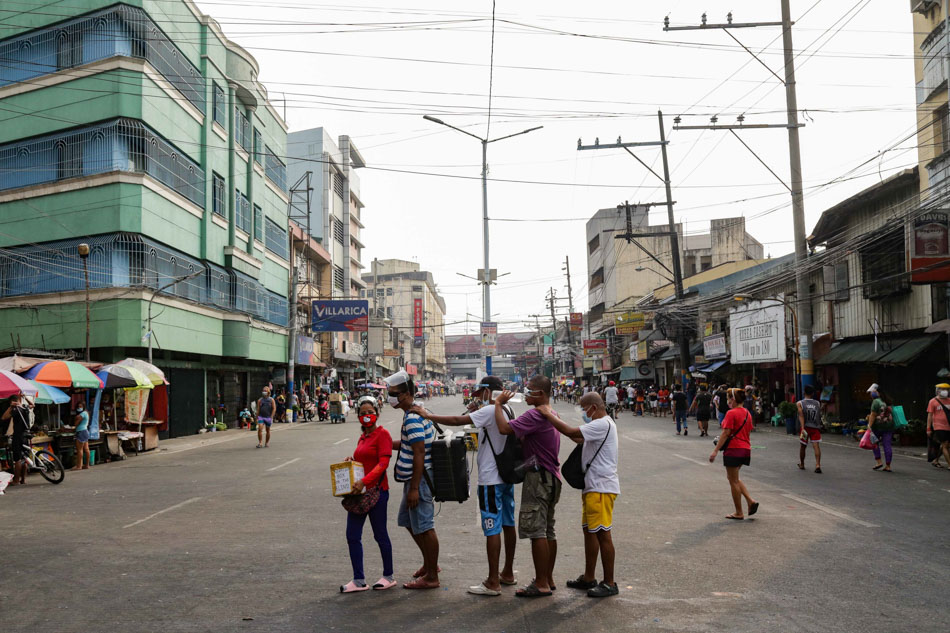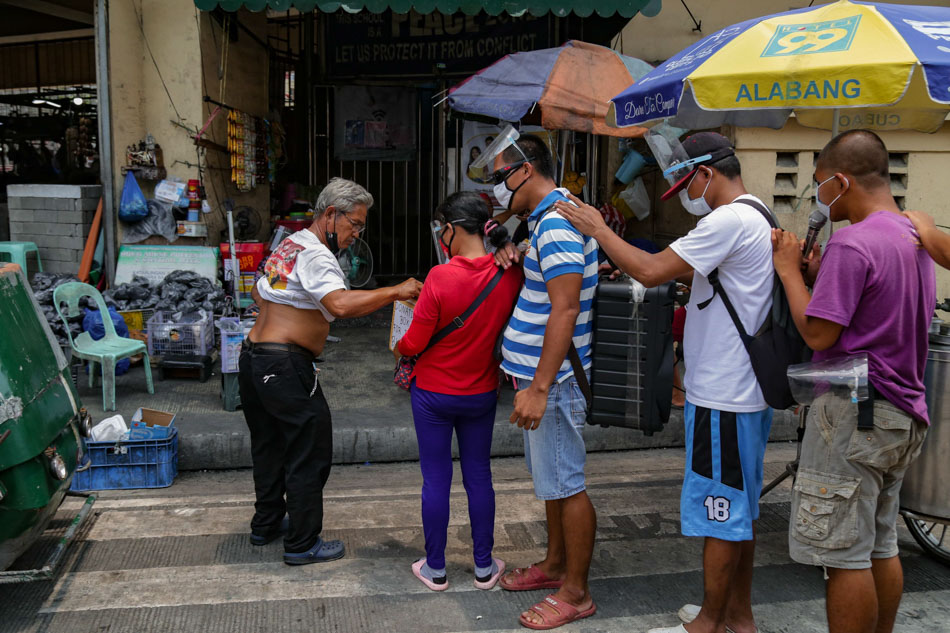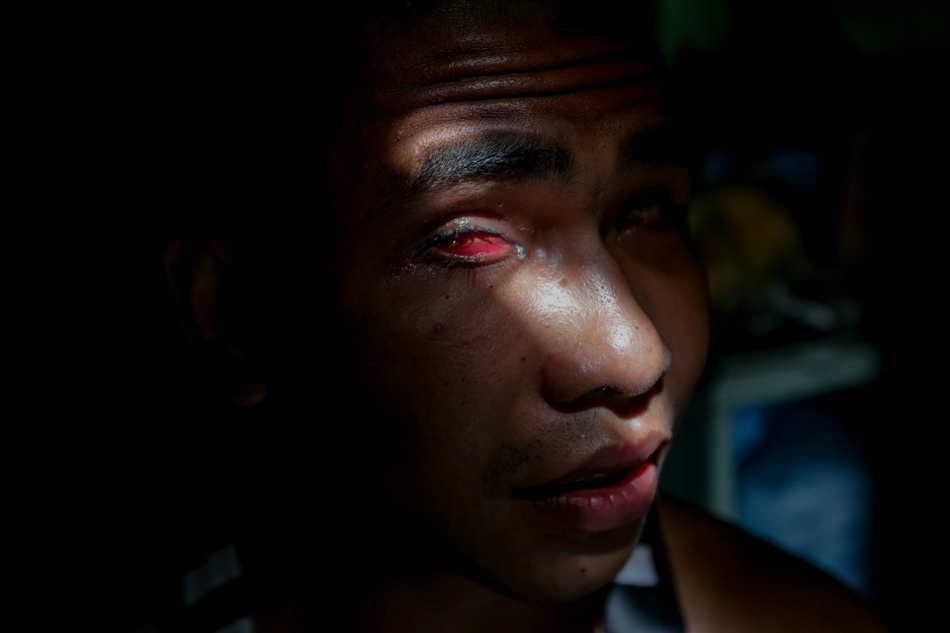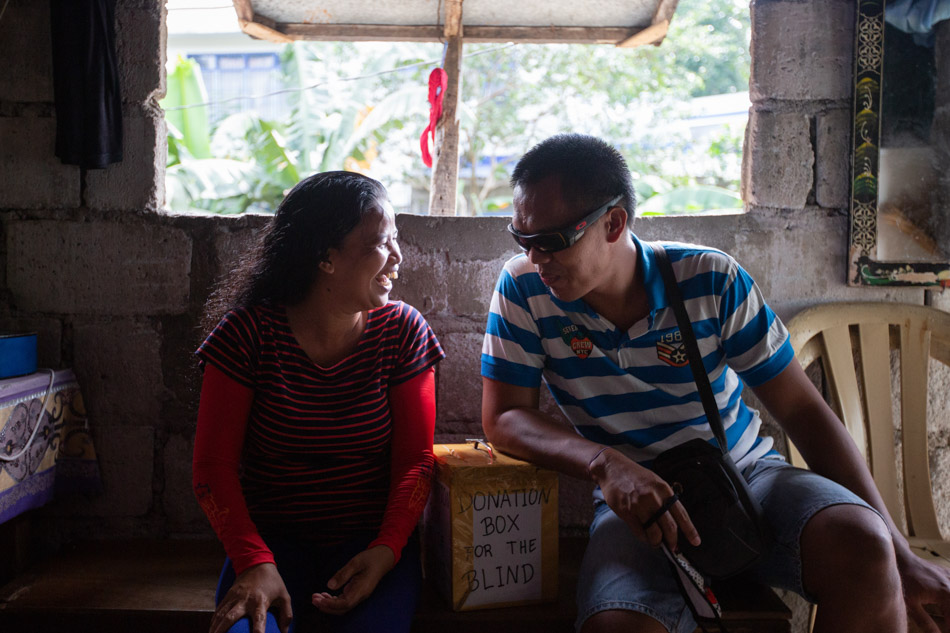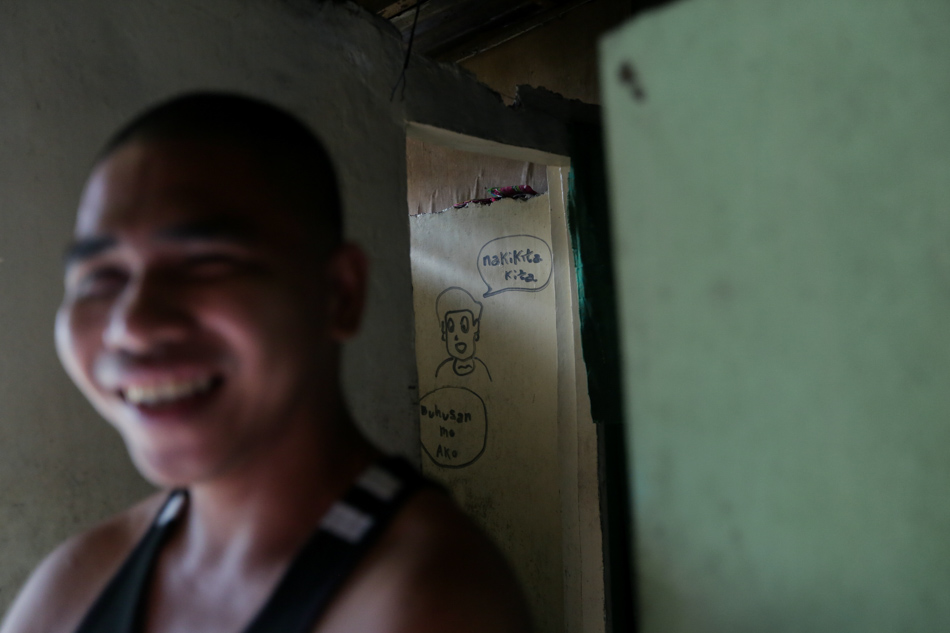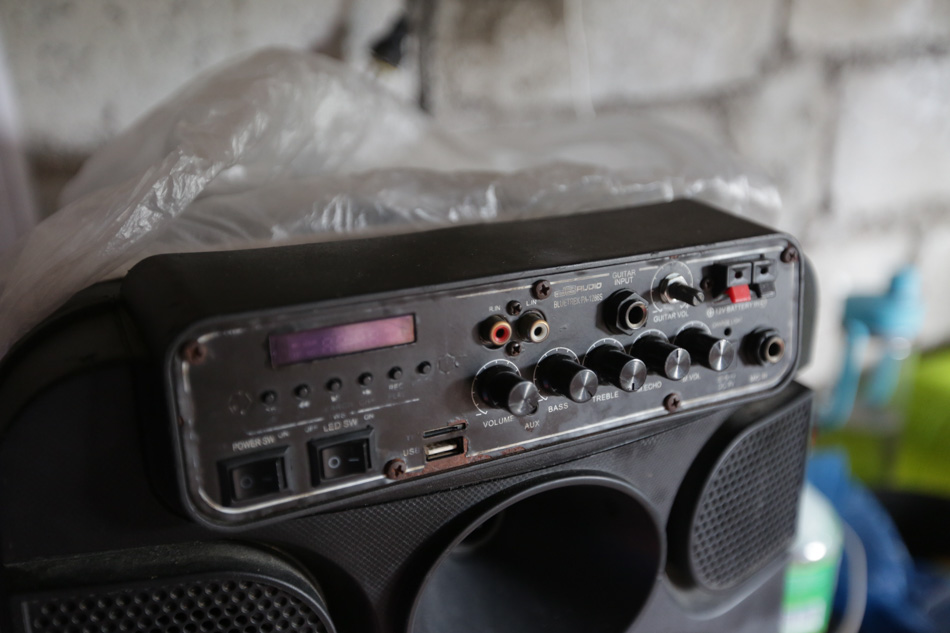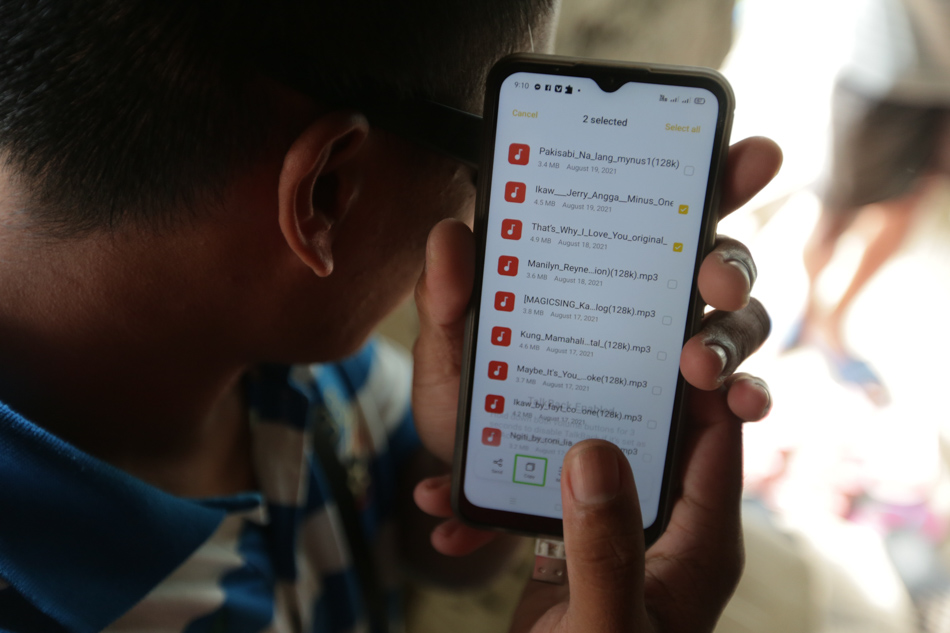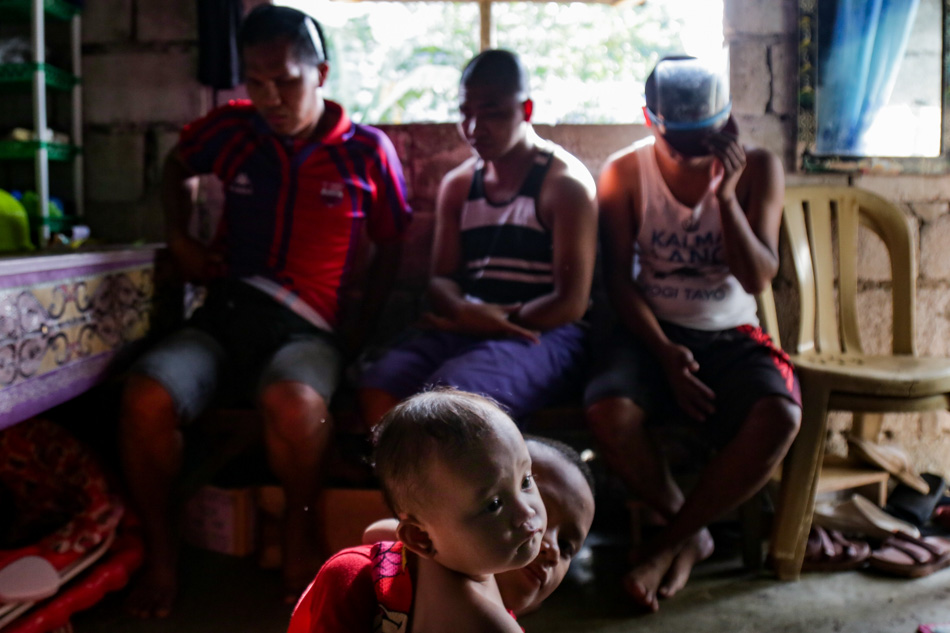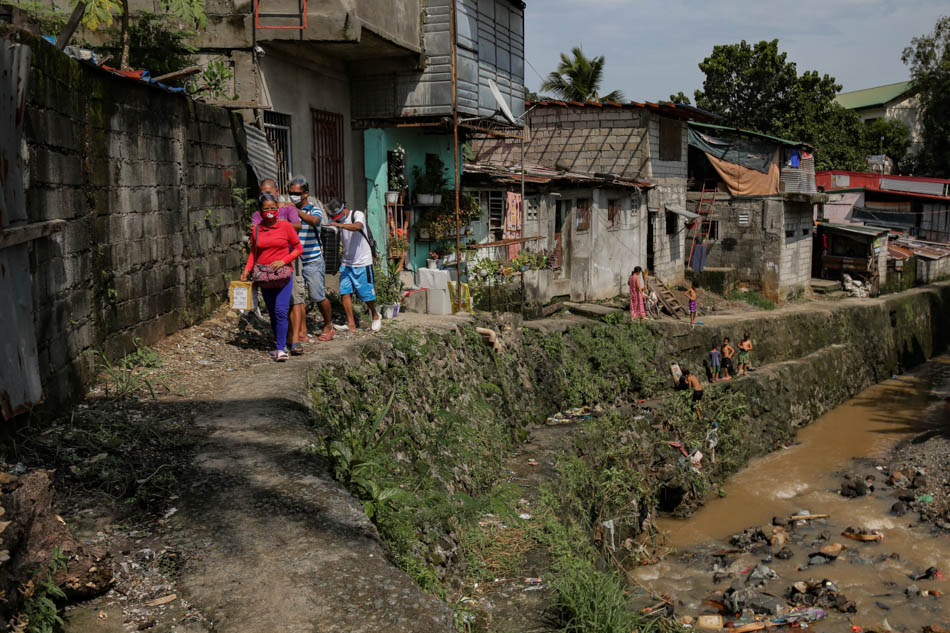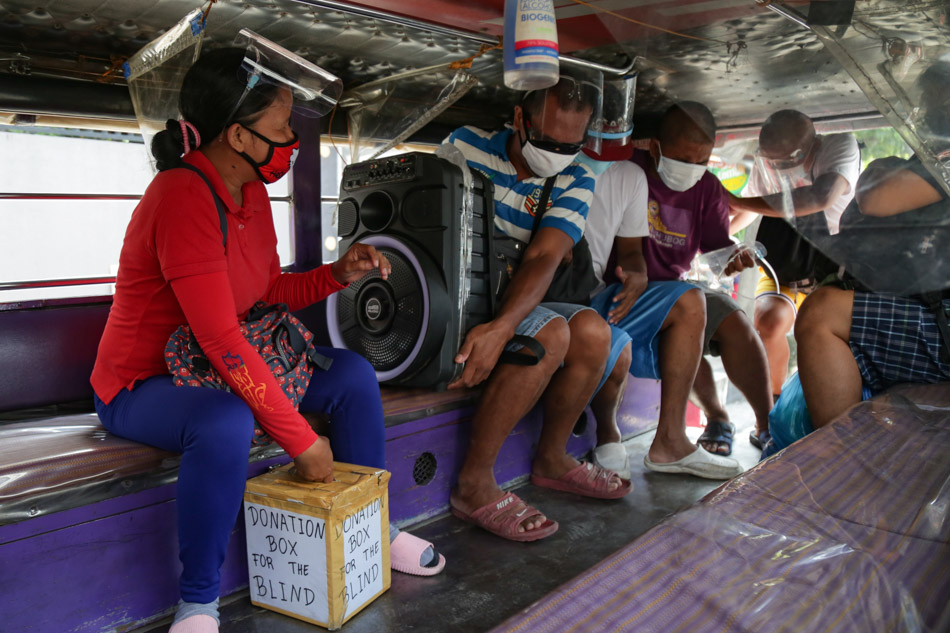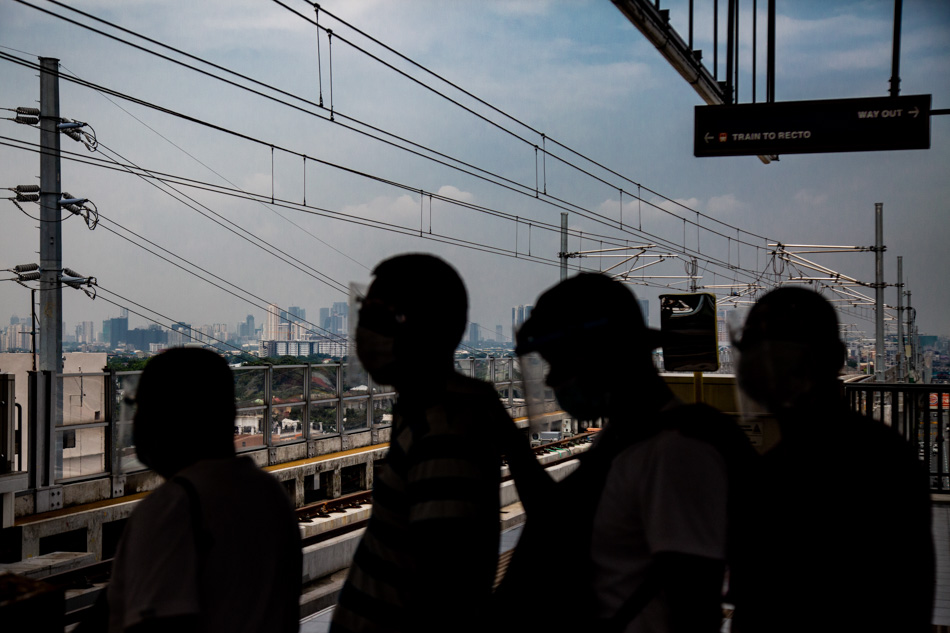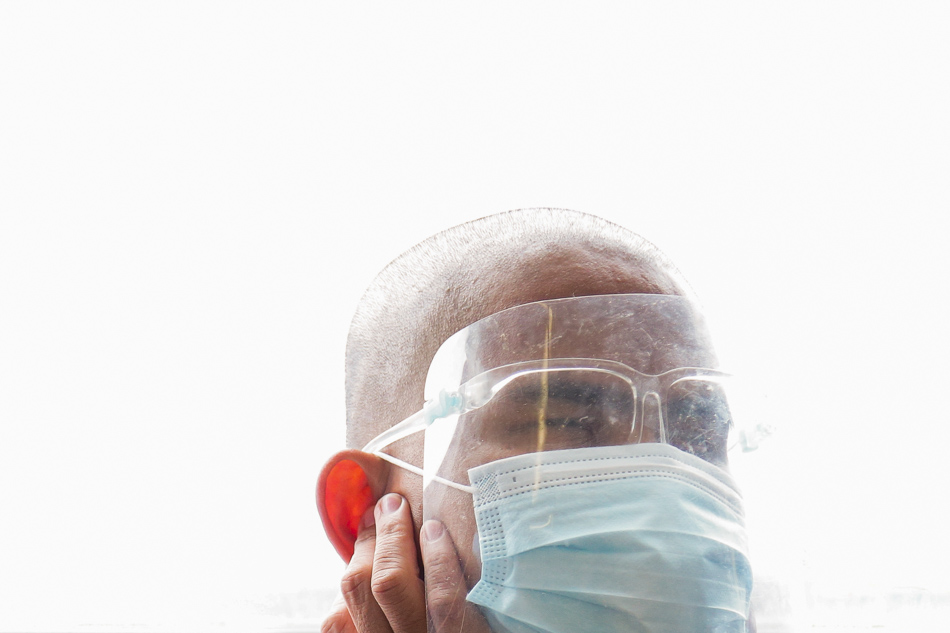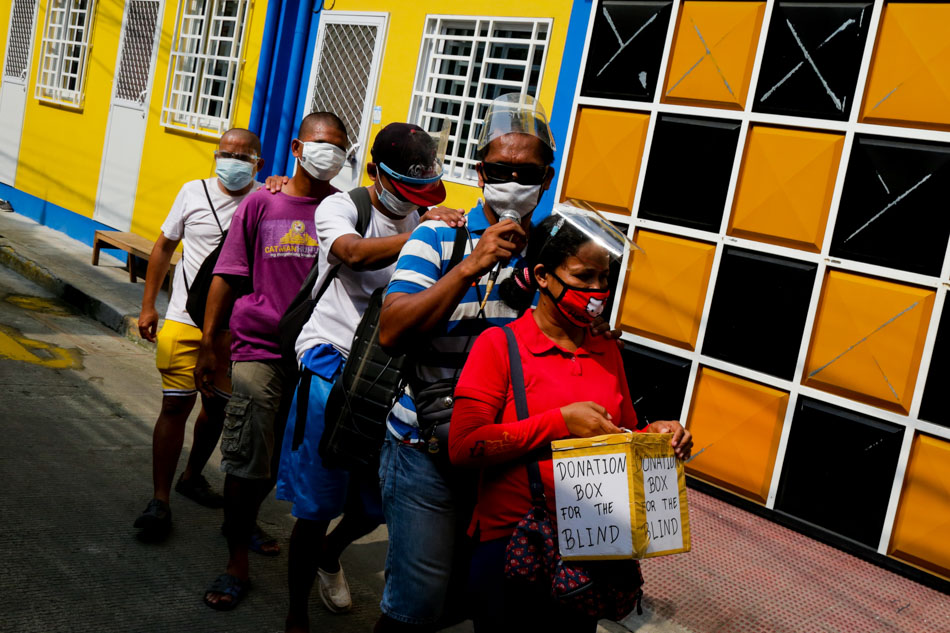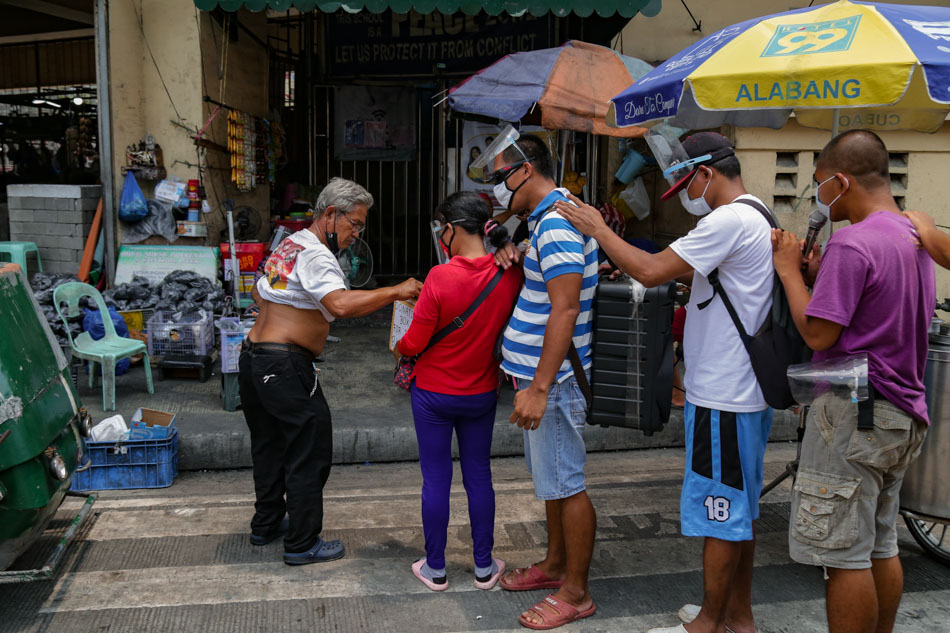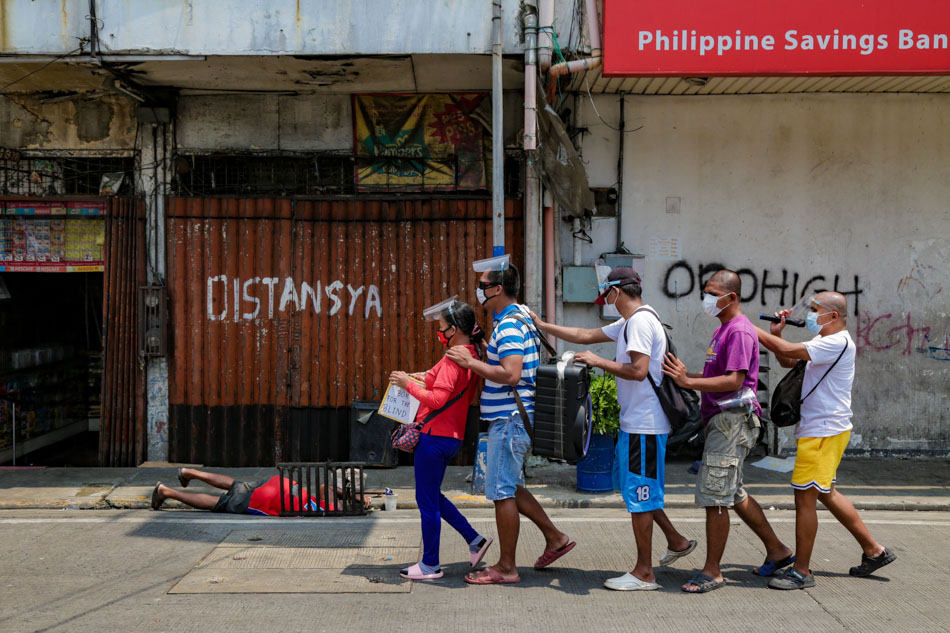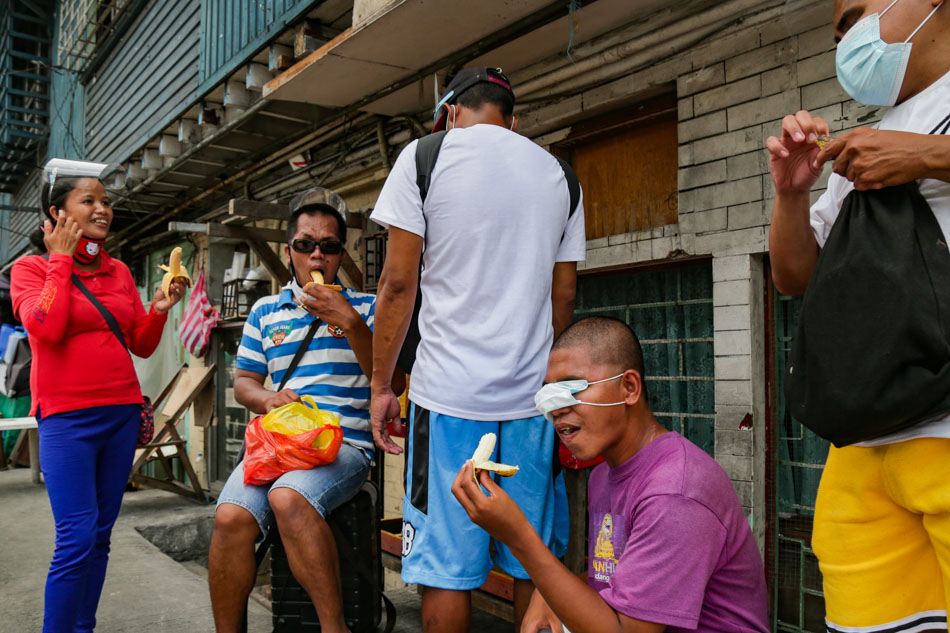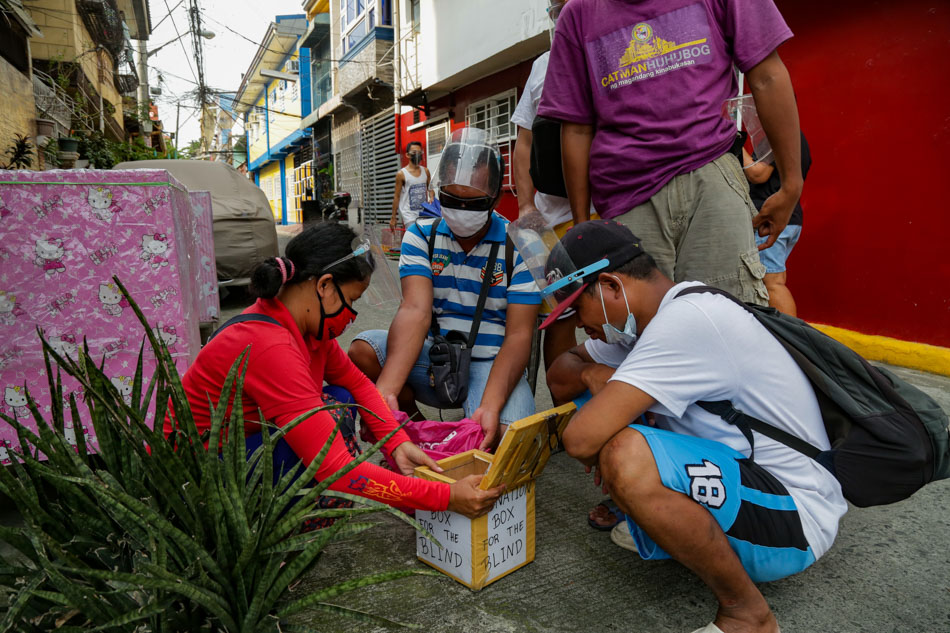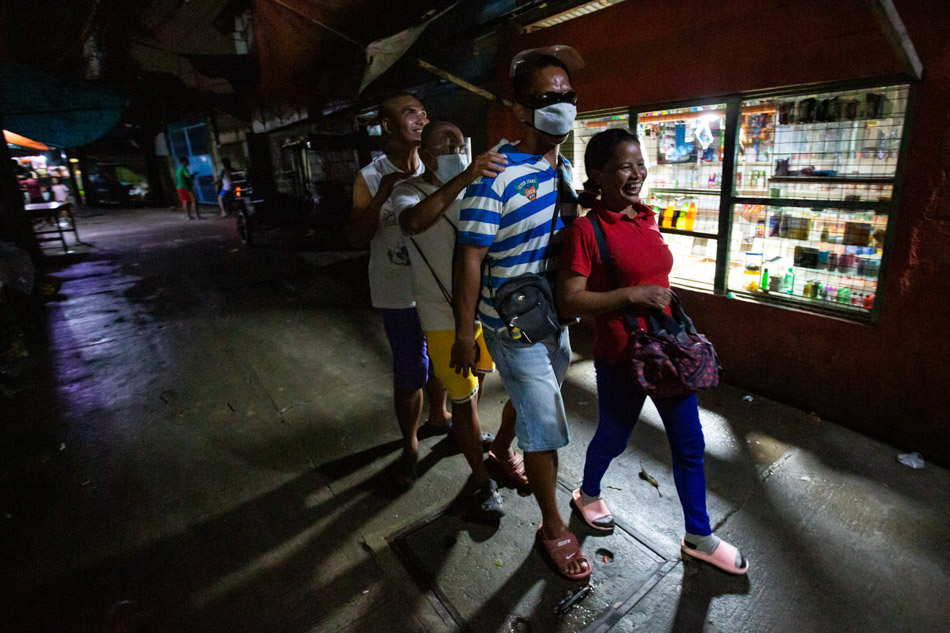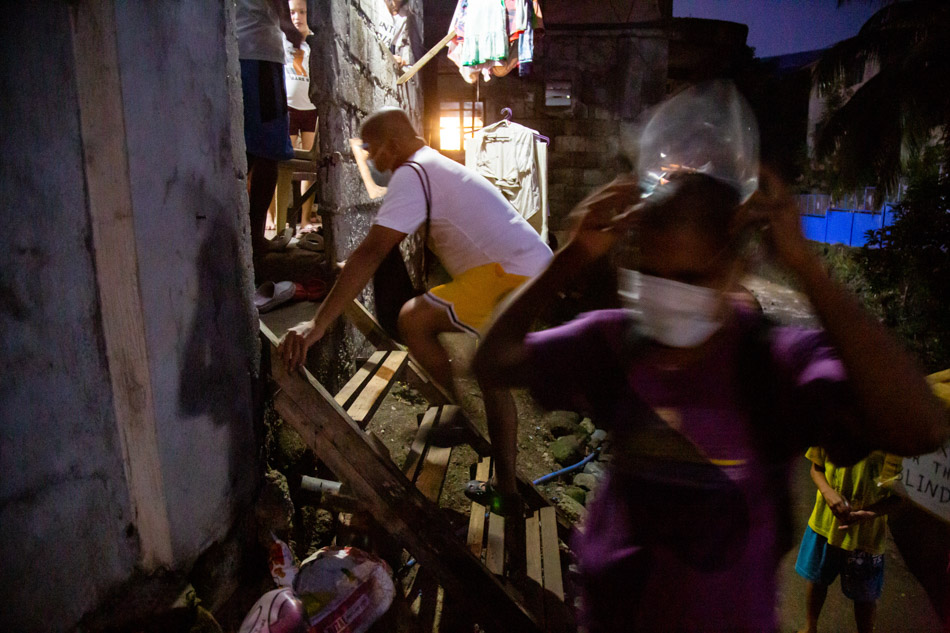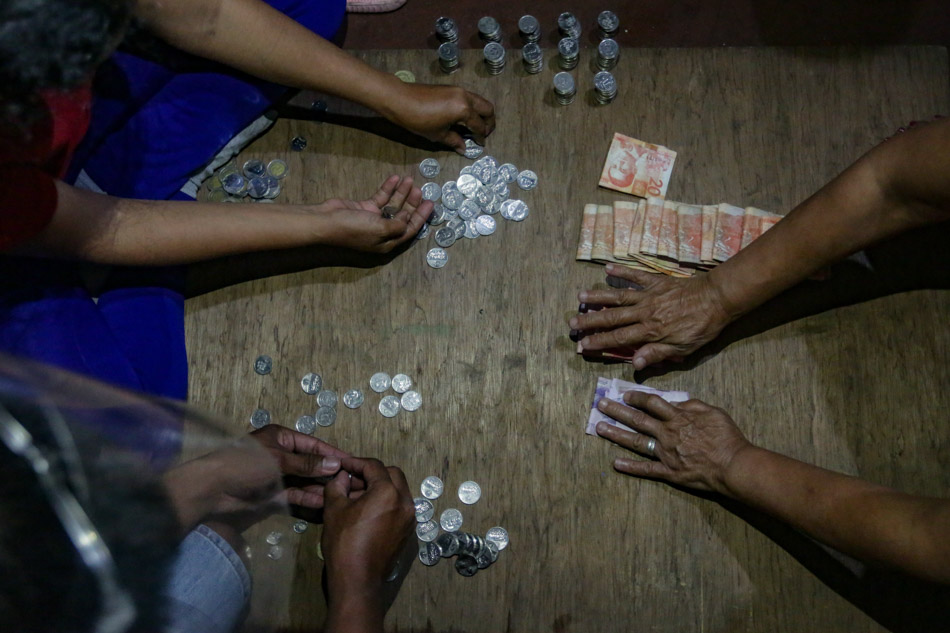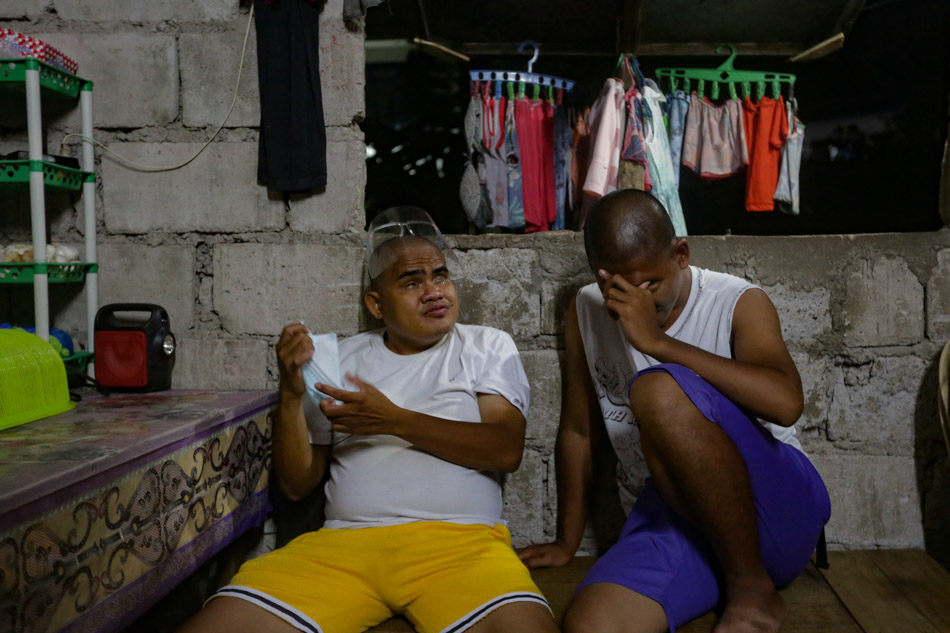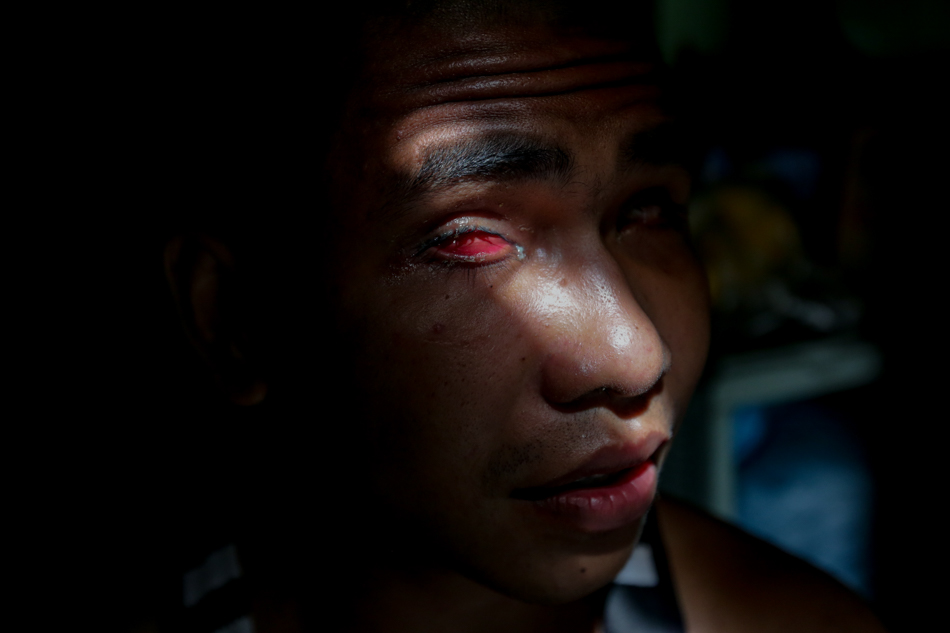Kamag-anak sa mata: How blind masseurs survive the pandemic | ABS-CBN

Welcome, Kapamilya! We use cookies to improve your browsing experience. Continuing to use this site means you agree to our use of cookies. Tell me more!
Kamag-anak sa mata: How blind masseurs survive the pandemic
Kamag-anak sa mata: How blind masseurs survive the pandemic
George Calvelo,
ABS-CBN News
Published Aug 23, 2021 05:08 PM PHT
|
Updated Aug 23, 2021 06:30 PM PHT
KAMAG-ANAK SA MATA
It was a lazy Friday morning in Sitio Tanglaw in Antipolo City, as the gang gets up quite later than usual. The sunlight reaches the corners of their small house after heavy rain drenched most of their belongings and caused water to overflow from the creek just outside the meek structure they call home.
It was a lazy Friday morning in Sitio Tanglaw in Antipolo City, as the gang gets up quite later than usual. The sunlight reaches the corners of their small house after heavy rain drenched most of their belongings and caused water to overflow from the creek just outside the meek structure they call home.
Living most of their lives in blindness, waking up every day is a blessing for them. Jocelyn Nagpacan, 38, prepares coffee for his partner, 32-year-old Ernesto, and their friends Je, 27 and John, 29. The group prepares for another ‘rolling’ trip deep into the heart of Manila for this particular work day for them.
Living most of their lives in blindness, waking up every day is a blessing for them. Jocelyn Nagpacan, 38, prepares coffee for his partner, 32-year-old Ernesto, and their friends Je, 27 and John, 29. The group prepares for another ‘rolling’ trip deep into the heart of Manila for this particular work day for them.
“Rolling”, as they call it, was derived from the word “caroling”, when they used to sing in the neighborhood during the holidays to earn money. After the holiday season passed, they decided to continue singing for money, and just omitted the first two letters of the word. The group is scheduled to meet another member, 34-year-old Kiko, just a few blocks away from their place.
“Rolling”, as they call it, was derived from the word “caroling”, when they used to sing in the neighborhood during the holidays to earn money. After the holiday season passed, they decided to continue singing for money, and just omitted the first two letters of the word. The group is scheduled to meet another member, 34-year-old Kiko, just a few blocks away from their place.
Jocelyn serves as the group’s guide during their trips, a job she learned from her mother, 63-year-old Dolores Nagpacan. The communities in Sitio Tanglaw is famous for housing a big number of blind people. It was back in 1985 when a blind community was relocated there after a fire razed a neighborhood in Quezon City, according to Dolores. Since then, residents of there have learned how to live with these differently-abled people.
Jocelyn serves as the group’s guide during their trips, a job she learned from her mother, 63-year-old Dolores Nagpacan. The communities in Sitio Tanglaw is famous for housing a big number of blind people. It was back in 1985 when a blind community was relocated there after a fire razed a neighborhood in Quezon City, according to Dolores. Since then, residents of there have learned how to live with these differently-abled people.
ADVERTISEMENT
IT DEPENDS ON THE SPEAKER
For most blind people, setting up massage stalls inside malls and other public areas was their main source of income. As different types of lockdown measures were implemented since the pandemic struck early last year, Ernesto and the group had to find ways to earn for their families, thus the idea of ‘rolling’ was born.
For most blind people, setting up massage stalls inside malls and other public areas was their main source of income. As different types of lockdown measures were implemented since the pandemic struck early last year, Ernesto and the group had to find ways to earn for their families, thus the idea of ‘rolling’ was born.
Last April, Ernesto bought their speaker for P2,800 in Raon, equipped with a microphone and guitar input, USB and memory card slots, and an auxiliary port. He had to haggle for the price, as he was only using money he received from the government’s cash aid to purchase the unit. Along with his friends, they maintain the speaker by allotting P35 each day for parts and maintenance, and do minor repairs on the microphones and cables on their own to lessen expenses.
Last April, Ernesto bought their speaker for P2,800 in Raon, equipped with a microphone and guitar input, USB and memory card slots, and an auxiliary port. He had to haggle for the price, as he was only using money he received from the government’s cash aid to purchase the unit. Along with his friends, they maintain the speaker by allotting P35 each day for parts and maintenance, and do minor repairs on the microphones and cables on their own to lessen expenses.
“Yung speaker namin noon, medyo palyado na. Madali na rin ma-low batt. Kaya naisipan ko palitan ko na yung speaker. Kahit na sa ayuda ko manggaling yun, unti-untiin ko nalang.”
“Yung speaker namin noon, medyo palyado na. Madali na rin ma-low batt. Kaya naisipan ko palitan ko na yung speaker. Kahit na sa ayuda ko manggaling yun, unti-untiin ko nalang.”
The group negotiates several roads every day to sing songs which they enjoy doing as well. They frequent markets and business establishments in densely populated areas, as there is always a high chance of earning more in these places.
The group negotiates several roads every day to sing songs which they enjoy doing as well. They frequent markets and business establishments in densely populated areas, as there is always a high chance of earning more in these places.
As the group makes the rounds, the guys constantly poke fun at each other, flashing smiles and laughter as they walk the streets of Blumentritt market in Manila, the chosen area for the day. The usual topic is about their crushes and their past love experiences. Ernesto usually interjects clever jokes in between popular songs like “Nandito ako” by Ogie Alcasid while Kiko sings the parts.
As the group makes the rounds, the guys constantly poke fun at each other, flashing smiles and laughter as they walk the streets of Blumentritt market in Manila, the chosen area for the day. The usual topic is about their crushes and their past love experiences. Ernesto usually interjects clever jokes in between popular songs like “Nandito ako” by Ogie Alcasid while Kiko sings the parts.
ADVERTISEMENT
The guys pack each of their own raincoats in case the weather wouldn’t cooperate with them. Even their speaker has its own cover for harsh weather, as they won’t let traveling from Antipolo to Manila amount to nothing just because of moderate rainfall. They would only stop when their speaker’s battery runs out or when the weather is really punishing. Sometimes, they look for kind-hearted people who would let them charge their speaker for a few minutes, just to be able to continue the day’s work.
The guys pack each of their own raincoats in case the weather wouldn’t cooperate with them. Even their speaker has its own cover for harsh weather, as they won’t let traveling from Antipolo to Manila amount to nothing just because of moderate rainfall. They would only stop when their speaker’s battery runs out or when the weather is really punishing. Sometimes, they look for kind-hearted people who would let them charge their speaker for a few minutes, just to be able to continue the day’s work.
WALA DITO ANG MAY-ARI!
Jocelyn and Dolores say that in their years of experience doing this work, most of the people donating to the group are low-income earners as well. Sidewalk vendors, garbage collectors, and market laborers or ‘kargadors’ are the usual people who give spare change to them instead of business and store owners.
Jocelyn and Dolores say that in their years of experience doing this work, most of the people donating to the group are low-income earners as well. Sidewalk vendors, garbage collectors, and market laborers or ‘kargadors’ are the usual people who give spare change to them instead of business and store owners.
“Mas gusto pa nila magbigay. Kahit yung mga bata nagbibigay, hinuhulog nila dun sa box. Yung mayayaman, ayaw, or sasabihin ‘wala dito yung may-ari!’. Ganun,” shared Dolores.
“Mas gusto pa nila magbigay. Kahit yung mga bata nagbibigay, hinuhulog nila dun sa box. Yung mayayaman, ayaw, or sasabihin ‘wala dito yung may-ari!’. Ganun,” shared Dolores.
“Mas gusto pa nga namin sa mga iskwater mag-ikot kaysa dun sa mayayaman. Mas magaang kasi ang loob nila sa mahihirap na katulad namin kaysa sa mayayaman. Minsan, pagsasarhan ka pa ng pinto. Pwede naman nilang sabihin na wala po e, kaysa yung biglang pagsarhan ka ng pinto. Masakit sa loob eh,” lament Ernesto and Jocelyn.
“Mas gusto pa nga namin sa mga iskwater mag-ikot kaysa dun sa mayayaman. Mas magaang kasi ang loob nila sa mahihirap na katulad namin kaysa sa mayayaman. Minsan, pagsasarhan ka pa ng pinto. Pwede naman nilang sabihin na wala po e, kaysa yung biglang pagsarhan ka ng pinto. Masakit sa loob eh,” lament Ernesto and Jocelyn.
Several worn-out P20 bills and 5-peso and 1-peso coins they pulled out from the box amounted to a total of P3,330. Divided by five, less the transportation expenses, each member of the group received P585.00 for a grueling 8-hour walk.
Several worn-out P20 bills and 5-peso and 1-peso coins they pulled out from the box amounted to a total of P3,330. Divided by five, less the transportation expenses, each member of the group received P585.00 for a grueling 8-hour walk.
ADVERTISEMENT
“Nakakapagod man pero ayos na rin. Kaysa walang kitain sa isang araw. Masayang sama-sama. Kahit papaano, kumikita. Kung ikukumpara yung nakaraan na bago mag-pandemic at sa ngayon, nakakalungkot talaga. Noon, hindi kami nagpapagod. Higit pa ang kinikita namin. Bagama't ngayon, talagang kukunin namin sa pinagpawisan yung aming dapat kitain sa maghapon. Yung init ng araw, titiisin at yung sobrang pagod ng mga binti. Pasalamat pa rin kami sa Diyos,” says Ernesto. Both Je and Kiko are equally thankful for what they receive doing this kind of work.
“Nakakapagod man pero ayos na rin. Kaysa walang kitain sa isang araw. Masayang sama-sama. Kahit papaano, kumikita. Kung ikukumpara yung nakaraan na bago mag-pandemic at sa ngayon, nakakalungkot talaga. Noon, hindi kami nagpapagod. Higit pa ang kinikita namin. Bagama't ngayon, talagang kukunin namin sa pinagpawisan yung aming dapat kitain sa maghapon. Yung init ng araw, titiisin at yung sobrang pagod ng mga binti. Pasalamat pa rin kami sa Diyos,” says Ernesto. Both Je and Kiko are equally thankful for what they receive doing this kind of work.
PANDEMIC ‘HOAX’ AND VACCINE HESITANCY
Je shares that before the pandemic, he was able to save P40,000.00 from massage jobs. But it got depleted when the lockdowns started. During the ECQ, malls were closed, and massage stalls were one of the least priority sectors considered for reopening. “Wala talagang natira kahit piso. Yung dalawang beses na pagbigay ng SAP (Social Amelioration Program), talagang hindi ako nabigyan. Ang katwiran nila doon, hind raw kasi ako botante." Despite the continuing rise in COVID-19 cases and the threat of the more transmissible Delta variant, Metro Manila and Laguna reverted to modified enhanced community quarantine (MECQ), a slightly relaxed quarantine restriction, on Aug. 21. The group showed no signs of fear being outside their houses and having several contacts with strangers in public. Most of them shared the impression that COVID-19 is a hoax, despite statements from health authorities and experts.
Je shares that before the pandemic, he was able to save P40,000.00 from massage jobs. But it got depleted when the lockdowns started. During the ECQ, malls were closed, and massage stalls were one of the least priority sectors considered for reopening. “Wala talagang natira kahit piso. Yung dalawang beses na pagbigay ng SAP (Social Amelioration Program), talagang hindi ako nabigyan. Ang katwiran nila doon, hind raw kasi ako botante." Despite the continuing rise in COVID-19 cases and the threat of the more transmissible Delta variant, Metro Manila and Laguna reverted to modified enhanced community quarantine (MECQ), a slightly relaxed quarantine restriction, on Aug. 21. The group showed no signs of fear being outside their houses and having several contacts with strangers in public. Most of them shared the impression that COVID-19 is a hoax, despite statements from health authorities and experts.
“Sa panahon ngayon, sa bali-balita kasi, hindi naman totoo yang COVID na 'yan. D'yan sa amin, may namatay kasi d'yan. Tapos gusto daw ilista ng doktor na may COVID, kahit wala naman para walang bayad yung namatayan.”
“Sa panahon ngayon, sa bali-balita kasi, hindi naman totoo yang COVID na 'yan. D'yan sa amin, may namatay kasi d'yan. Tapos gusto daw ilista ng doktor na may COVID, kahit wala naman para walang bayad yung namatayan.”
John speaks with conviction about his beliefs. But when asked about the facts of the story, he says: “Hindi ko lang alam ano kinamatay. Inatake siguro. Ewan ko. Pero ibig sabihin, doctor ang nagpapalaki ng COVID. At saka bakit kadalasan ng binabalita, may vaccine na sila, nagkaka-COVID pa rin? Eh kami nga na 'di pa nabakunahan, 'di kami nagka-COVID eh.” Je and Kiko also shared the same observation. But they were less passionate about it, unlike John who seemed sure of what he was saying. Authorities have said that vaccinated people may still get COVID-19, but will not suffer serious illness.
John speaks with conviction about his beliefs. But when asked about the facts of the story, he says: “Hindi ko lang alam ano kinamatay. Inatake siguro. Ewan ko. Pero ibig sabihin, doctor ang nagpapalaki ng COVID. At saka bakit kadalasan ng binabalita, may vaccine na sila, nagkaka-COVID pa rin? Eh kami nga na 'di pa nabakunahan, 'di kami nagka-COVID eh.” Je and Kiko also shared the same observation. But they were less passionate about it, unlike John who seemed sure of what he was saying. Authorities have said that vaccinated people may still get COVID-19, but will not suffer serious illness.
The challenges of the COVID-19 pandemic are compounded by widespread misinformation among people amplified by the advancement of technology and the internet. Being members of the PWD community, the group only consumes news through radio and the internet, most of the time failing to verify the facts of their sources.
The challenges of the COVID-19 pandemic are compounded by widespread misinformation among people amplified by the advancement of technology and the internet. Being members of the PWD community, the group only consumes news through radio and the internet, most of the time failing to verify the facts of their sources.
ADVERTISEMENT
Asking John where he got all his information about COVID-19, he said, “Mga narinig lang sa labas, sa social media. Sabi-sabi sa Facebook at Youtube.”
Asking John where he got all his information about COVID-19, he said, “Mga narinig lang sa labas, sa social media. Sabi-sabi sa Facebook at Youtube.”
“Ako, hangga’t hindi mandatory, 'di ako magpapabakuna. Kung kaya naman ng katawan mo eh,” says Je.
“Ako, hangga’t hindi mandatory, 'di ako magpapabakuna. Kung kaya naman ng katawan mo eh,” says Je.
Two years on in the country's battle against the coronavirus disease, intermittent lockdowns are implemented, causing significant damage to the economy.
Two years on in the country's battle against the coronavirus disease, intermittent lockdowns are implemented, causing significant damage to the economy.
For these people, traversing the darkness in this crisis is a whole different story. With one of the important senses lacking, they rely on their ears to get pieces of information to help them get by in their lives, either online or from neighborhood hearsay.
For these people, traversing the darkness in this crisis is a whole different story. With one of the important senses lacking, they rely on their ears to get pieces of information to help them get by in their lives, either online or from neighborhood hearsay.
Read More:
caroling
COVID19
COVID19 pandemic
enhance community quaratine
blind masseurs
Sitio Tanglaw
Antipolo City
lockdown
livelihood
livelihood pandemic
ADVERTISEMENT
ADVERTISEMENT


